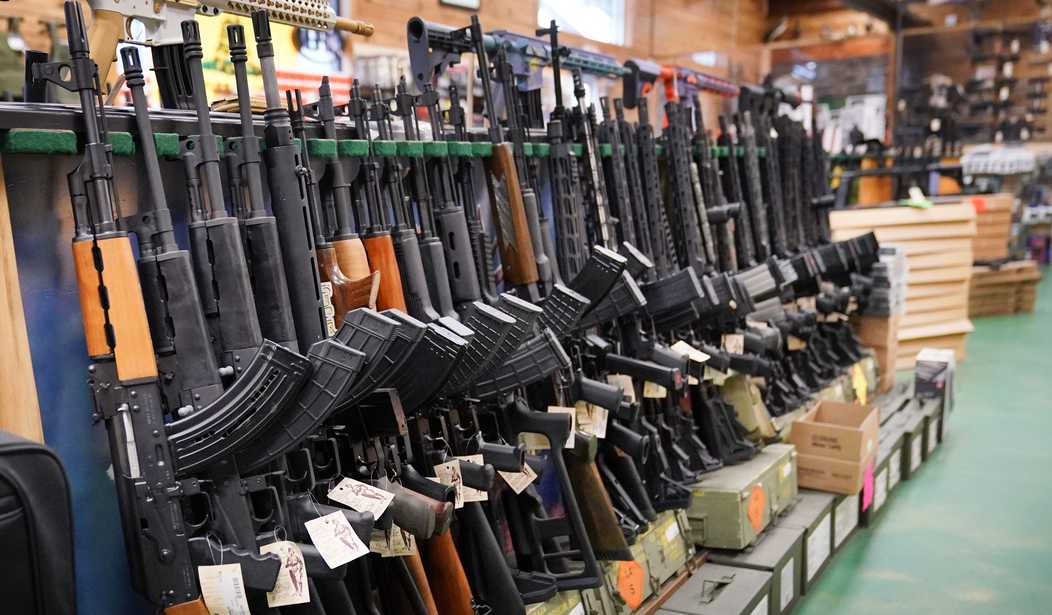After every high-profile mass shooting, the gun control debate flares up again (so long as the shooter and victims fit the right demographic and the victim count is high enough, as the recent Iowa shooting demonstrates), everyone has his take, and then everything goes back to normal after a while. Some laws may be changed, added, or removed, but ultimately everything settles back down.
Related: The Iowa School Shooter Was an LGBTQ+ Activist
Tom Knighton, one of our friends over at Bearing Arms, recently described a gun control advocate's "modest proposal" to the gun debate, which was to make it as difficult to buy a gun as possible. As Knighton pointed out, not only does this leave far too many people vulnerable, but it fundamentally demonstrates why the pro-gun and anti-gun arguments are at such an impasse.
Nevertheless, I do have a multi-part idea about how to settle the gun debate in such a way that satisfies the pro-gun and anti-gun sides. This is not meant to be conclusive but rather a springboard for discussion.
The first part of this idea is that all new guns manufactured after the adoption of this proposal must be "smart" guns, the kind that only works with certain fingerprints. However, it should be very clearly written out that the government, the manufacturer, and any other third party cannot keep track of these fingerprints. The data must be fully self-contained to the gun and will be erased upon destruction.
The reason for this idea is to lessen the chances of accidental misfires by someone like a small child and to prevent criminals from using stolen guns, which is arguably where this will be most effective.
Alongside this, research should go into making smart gun technology applicable to a gun that does not already have it, to allow multiple fingerprints can be logged to a single gun in a way that can be applied by anybody.
From here, this technology can be commercially available and sold at gun shops. Background checks will remain in place, meaning that someone who is not legally permitted to own a firearm will still not be able to get one, nor will he be given the means to apply his fingerprint to an existing gun, and incentives should be offered for gun owners to apply the tech to guns they own that do not already have it.
Additionally, the application of smart gun technology must be witnessed by a third party, meaning it will be done in-store (thus rendering waiting periods redundant). This would also apply when a gun owner wants to let someone else use the same gun, and he must appear in the store with the original owner and take the same background check. Similarly, the original owner can have this revoked later if he so desires, although he should offer evidence that the other person is unfit to use the gun, and the gun shop will remove the fingerprint.
Theoretically, smart gun requirements would also render restrictions on the types of guns and accessories available pointless. If smart tech becomes widespread and guns only fire when a specific fingerprint is on the trigger, it should not matter if the gun is fully automatic or has any furniture, because only the person with the correct fingerprints will be able to use it, which will in turn also make "gun-free zones" pointless.
This is what anti-gun people forget: It is not what sort of guns maniacs use in mass shootings or what attachments the guns have that are the main problem but the fact the shooters themselves are maniacs.
Of course, not all maniacs are obvious, nor do intervention and mental health treatment always work. Robert Card, the alleged Lewiston, Maine, shooter from November, had multiple red flags against him, yet he was still able to legally purchase guns because his involuntary commitment was not logged into a database through carelessness.
Thus I fully concede that this idea will not stop every mass shooting because mental health treatment is not always effective and people who would otherwise fail a background check can slip through the cracks. The main point of this exercise is to propose a potential compromise more than anything else.
To reiterate, this idea is not definitive and is open to discussion, criticism, and the pointing out of any additional holes.
ADDENDUM: I appreciate everybody’s comments and feedback and acknowledge all the flaws of this piece. I admittedly did not see Tom Knighton’s column on Bearing Arms about smart guns and the problems with them. This was not necessarily an opinion I personally hold but rather an extrapolation on how smart guns could affect the gun debate. I will conduct better research in the future.
Thanks for reading and commenting!










